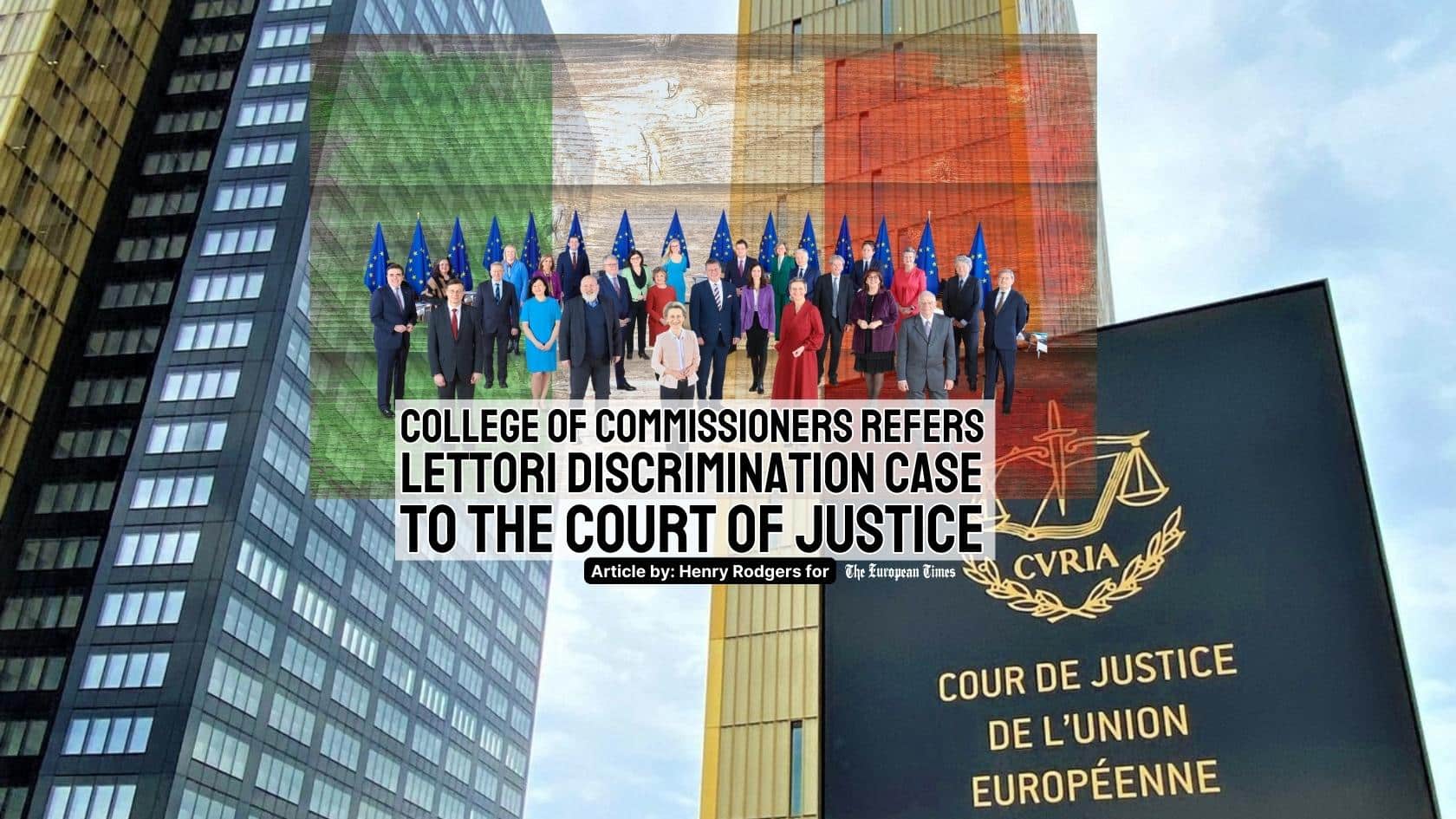The 1957 Founding Treaty of Rome empowered the European Commission, as guardian of the Treaty, to take infringement proceedings against Member States for perceived violation of their Treaty obligations. It further provided that where the Court of Justice established a failure to fulfil an obligation, the Member State responsible had to take the necessary measures to comply with the Court’s judgement.
Perhaps because of the optimism that surrounded the agreement of the historic Treaty, the signatories did not foresee the need for further measures to ensure that the Member States respected the rulings of the Court of Justice. Experience was to prove that such optimism was mistaken and that additional measures were in fact necessary. Hence, in the Treaty of Maastricht a new provision was introduced to enable the Commission to take follow-on enforcement cases for non-implementation of earlier infringement rulings, and the Court to impose pecuniary penalties on Member States where it deemed the Commission had proven its case.
These measures, particularly when taken in tandem, would seem adequate to remedy breaches of EU law. That the Commission would have to revert to the first stage and begin fresh infringement proceedings for the non-implementation of a second-stage enforcement ruling was not foreseen in the arrangements. Yet, this is precisely what has happened in the case of the long-running discrimination against foreign language lecturers(Lettori)in Italian universities, with all of the attendant human costs involved.
The circumstances which have given rise to this anomalous state of affairs were described in earlier articles in The European Times. In brief, in 2006 the Commission won enforcement case C-119/04, which it had taken against Italy for non-implementation of a 2001 infringement ruling of the Court of Justice. In its turn the initial infringement case was taken for non-implementation of the 2 Allué rulings of the Court, the first of which dates back to 1989.
In the high-profile Case C-119/04 the Commission had called for the imposition of daily fines of €309,750 on Italy for its continuing discrimination against the Lettori. Italy introduced a last-minute 2004 law awarding the Lettori a reconstruction of career from the date of first employment with reference to the parameter of part-time researcher or better parameters. Holding that the terms of the law could, if properly implemented, remedy the discrimination, the Court waived the recommended fines.
In follow-on correspondence with the Commission in the immediate aftermath of the 2006 ruling, Italy assured the Commission that the terms of the 2004 law were being, and would continue to be, fully applied. On the basis of these “firm assurances”, then Commissioner for Employment, Social Affairs and Equal Opportunities. Vladimír Špidla, announced in a press release of 2007 that the Commission was closing its infringement case against Italy.
The worth of these “firm assurances” was proven by a subsequent Commission decision to open a pilot procedure (a mechanism introduced to resolve disputes amicably with member states and prevent recourse to infringement proceedings) against Italy in 2011. As over the ensuing ten years this diplomatic procedure markedly failed to achieve its purpose, the Commission opened full infringement proceedings against Italy in September 2021 for the non-implementation of the 2006 enforcement ruling.
If the assurances given back in 2007 as to compliance with the 2006 Court ruling were at odds with the duty of loyal cooperation placed upon Member States in their dealings with the Commission, then Italy’s conduct over the course of the present infringement proceedings for the implementation of that ruling is equally so. In its September 2021 press release announcing the opening of the infringement proceedings, the Commission gave Italy two months to take measures to comply with the 2006 Court of Justice ruling. Despite been given a significant additional grace period, Italy did not take adequate measures. Moving to the reasoned opinion stage in January 2022, the Commission in its second press release of the proceedings cautioned Italy that it now had 2 months within which to pay the settlements due to Lettori to avoid eventual referral of the case to the Court of Justice.
Four months after their demonstration last December, Lettori gathered again on Thursday outside the offices of Minister for Universities, Anna Maria Bernini to protest against the fact that the settlements called for in the reasoned opinion had not been made. Situated on the left bank of the Tiber, the Minister’s offices are within easy walking distance of the Campidoglio on the right bank. As FLC CGIL, Italy’s largest trade union, pointedly noted in its recent open letter to Minister Bernini, this is the venue where the right to parity of treatment was enshrined as a provision of the historic Treaty of Rome.
Placing the right to parity of treatment in the context of the overall rights of European citizens, the Commission states that the right “is perhaps the most important right under community law, and an essential element of European citizenship”. A hypothetical Commission official present outside the Minister for Universities office on Thursday would have observed a gathering of Lettori from all the Member States of the EU, protesting that this right is being withheld them. The fact sheets distributed by these Letttori would have briefed the official on how the discrimination persists despite 4 clear-cut parity of pay rulings of the Court of Justice in the line of jurisprudence that runs from the seminal Allué ruling of 1989. Consequently, none of the Lettori present at the protest has ever worked under the parity of treatment conditions that should be automatic under the Treaty.
In infringement proceedings complainants, though not technically party to the proceedings, can contribute to the Commission case files and depositions. Complainant, Asso.CEL.L, a “La Sapienza” of Rome based labour association, with the assistance of Italy’s largest trade union, FLC CGIL, conducted a nationwide Census of the beneficiaries of the 2006 enforcement ruling, their length of service, and the parameters of part-time researcher or better parameter appropriate for the reconstructions of careers. From this data bank an efficient organization could make the settlements due to the Lettori in a matter of weeks.
Exchanges between Member States and the Commission are confidential in infringement proceedings. Consequently, the Lettori do not know how Italy proposes to react to the Commission ultimatum to pay the settlements due under the 2006 law. Intelligence gleamed from local university administrations suggests that the Italian authorities will try to value the settlements on the basis of the controversial Gelmini law of 2011.
The Gelmini law, enacted five years after the Court of Justice ruling, purports to interpret that same ruling. Aside from the audacity of legislating to interpret a ruling of the pinnacle institution of the European Union, the Gelmini reading of the ruling is at variance with the rulings handed down by local Italian courts in the interval between the Court of Justice sentence and the date of enactment of Gelmini itself. While these local court rulings awarded the Lettori plaintiffs an uninterrupted reconstruction of career from the date of first employment, the Gelmini law limits the reconstruction to the years prior to 1995- a limit nowhere prescribed in the Court sentence. Another glaring defect of the law is that its terms cannot arithmetically provide for the eventual more favourable parameters of the 2006 ruling.
Should Italy propose to apply the terms of the Gelmini law, this could be the catalyst to cause the Commission to refer the case to the Court of Justice. Reaction to this prospect was mixed among the protesters outside Minister Bernini’s offices. While some Lettori would welcome an eventual Court interpretation of how Gelmini had interpreted the 2006 ruling of the Court, others pointed to the fact that this would prolong the infringement proceedings by a possible further two years.
Kurt Rollin, a former lecturer at “La Sapienza” University of Rome, is Asso.CEL.L representative for retired Lettori. Speaking outside Minister Bernini’s office he said:
“The Commission holds that parity of treatment is the most important right under the Treaty. Yet as the record shows Italy has withheld this right from Lettori for decades. In the interests of European citizenry existing institutional arrangements need to be changed so that intransigent Member States cannot ignore Treaty rights indefinitely.”












